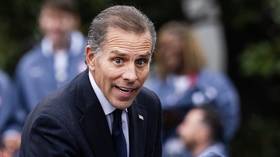Italy’s Euroskeptic coalition forms new cabinet after president’s ‘undemocratic’ veto
Giuseppe Conte will head a new Lega-Five Star Movement government after all, as the two parties proposed a new finance minister instead of EU critic Paolo Savona, whose candidacy was rejected by the president.
“All the conditions have been fulfilled for a political Five Star and Lega government,” said a joint statement from the two anti-establishment parties, which gathered more than half of the votes in the March election but had been unable to form a government for nearly three months.
With Conte to be sworn in on Friday, the new finance minister will be Giovanni Tria, a politically unaffiliated 69-year-old academic, who is regarded as anti-EU, but more flexible than Savona. The latter, who has called Italy’s entry into the euro zone a “historic mistake,” will become the European Affairs minister, with a remit to negotiate on Rome’s behalf in Brussels.
In line with the earlier proposal, Lega leader Matteo Salvini will become the interior minister, concentrating on his party’s pledges to cut illegal migration, while Five Star Movement leader Luigi di Maio will have a chance to tackle bureaucracy, cut taxes, and increase employment as minister of labor and industry.
The two parties had threatened to call a new election after President Sergio Mattarella overruled their choice of Savona late last week, suggesting that his radical stance could alienate the markets and threaten the country’s economic welfare.
The decision to ignore the coalition’s popular mandate from a man whose role is predominantly a ceremonial constitutional safety mechanism was criticized as anti-democratic, particularly when Mattarella later put forward a “technocratic cabinet” as a replacement.
The stand-off turned international when EU budget chief Gunther Oettinger said that it was “not acceptable” for Italians to vote for anti-euro populists, adding that “the markets will teach them how to vote.” The remark produced outrage in Italy. Even top EU officials including Jean-Claude Juncker and Donald Tusk stepped in, urging Europe to “respect” Italy’s democratic choice.
Juncker, the European commission president, could not altogether resist pouring oil onto the fire, saying on Thursday that Italians cannot pin their long-term economic stagnation on Brussels, urging them to engage in “more work and less corruption.”
If you like this story, share it with a friend!













